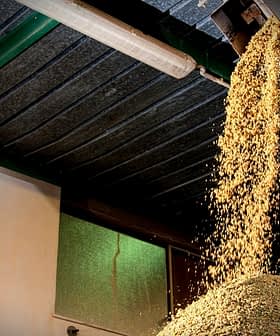For women, breast cancer is the most frequently diagnosed malignant tumor and is the leading cause of death among women. Since 2008, breast cancer incidence worldwide has increased by more than 20 percent and mortality from breast cancer has increased by 14 percent.
Historically breast cancer rates have been lower in Northern or Central European countries where the Mediterranean diet (MedDiet) is commonly consumed. The MedDiet is characterized by an abundance of plant foods, fish, and the consumption of extra virgin olive oil (EVOO). Numerous prospective cohort studies have evaluated the association between the MedDiet and breast cancer risk, but results have often been limited and conflicting. Until recently (Sept 2015) there has never been a randomized control trial to help establish more solid evidence.
The study by Toledo and Colleagues, published in JAMA Internal Medicine, was conducted in the framework of the Predimed trial. The Predimed trial was a Spanish multicenter randomized single blind controlled trial.
The subanalysis done by Toledo and Colleagues took 4,282 postmenopausal women out of the 7,447 participants in the Predimed trial. Women were aged 60 to 80 years and 4,152 of the 4,282 had no previous history of breast cancer. There were three lines of randomized dietary recommendations, a MedDiet supplemented with EVOO, a MedDiet supplemented with nuts and a control group following general low-fat dietary advice.
According to Hoffman and Schwingshackl, providing commentary on the Toledo trial in Evidence Based Medicine, “Invasive breast cancer was prespecified as a secondary outcome.” There was an average follow-up of 4.8 years with 35 new cases of malignant breast cancer identified by medical records or death certificates.
Incredibly, the results of the secondary analysis revealed that the risk of invasive breast cancer was reduced by 68 percent in those that consumed the MedDiet supplemented with EVOO. Whereas, there was no such reported effect for the MedDiet supplemented with nuts or the control group. It was established that every additional 5 percent of calories consumed from EVOO reduced risk of invasive breast cancer by approximately 28 percent.
According to Hoffman and Schwingshackl, although there is ample evidence around the beneficial effects of olive oil for cancer prevention, much of the research is observational evidence. Hoffman says, “a distinguishing feature of the study by Toledo and co-workers is the fact that it is a randomized controlled trial (RCT). More precisely, it is the first RCT demonstrating the benefit of a MedD pattern on breast cancer incidence.”
One limitation is that breast cancer was not a primary outcome of the Predimed trial. However, given the large sample size, the randomization was able to provide well-balanced and comparable groups, even larger in number than many other trials based on measuring specific primary outcomes. If anything the authors suggest that the results of their subanalysis are underestimated, suggesting that the low rate of breast cancer incidence in the Predimed trial overall could, in fact, be attributed to the consumption of a MedDiet.
One other thing that is not clear, which would be beneficial to explore in further research, is whether “the observed beneficial effect was attributable mainly to extra virgin olive oil or to its consumption within the context of the traditional MeDiet.”
Given the nature of this being a randomized trial, one of the most powerful forms of evidence, what this research suggests is that consuming a MedDiet supplemented with EVOO could provide a favorable effect, not just in reducing risk as other studies have shown, but in the primary prevention of cancer, especially breast cancer.








